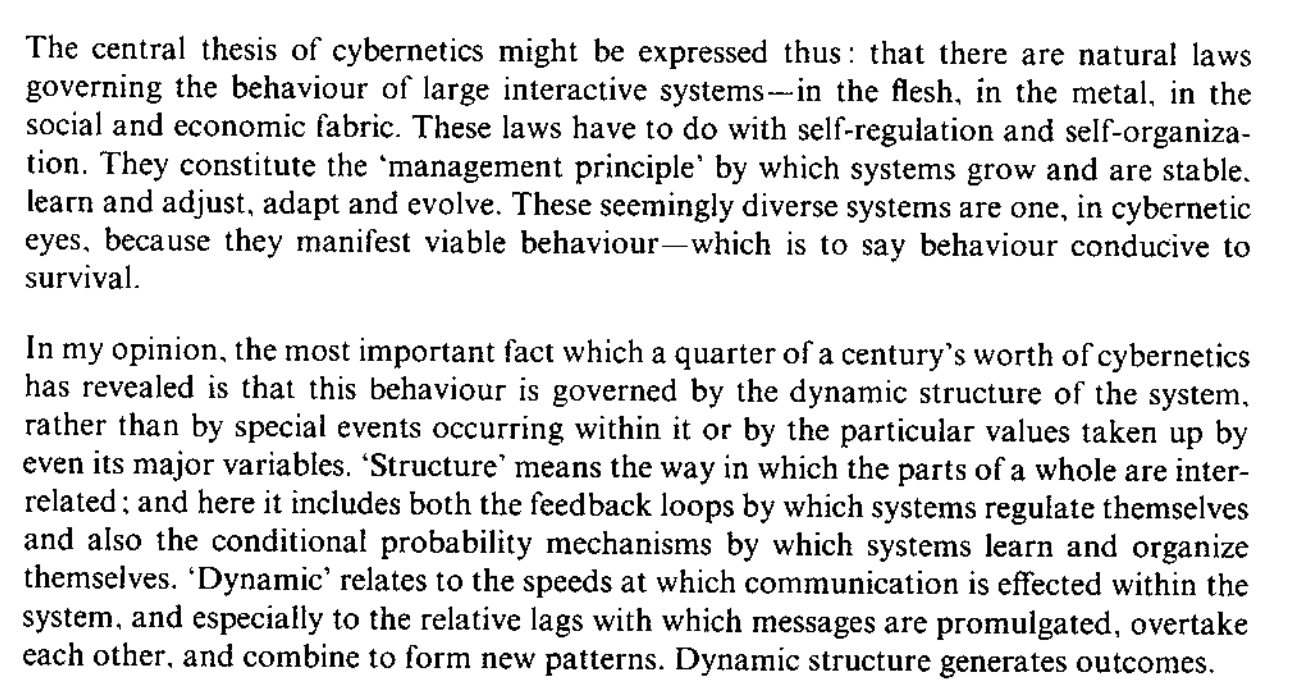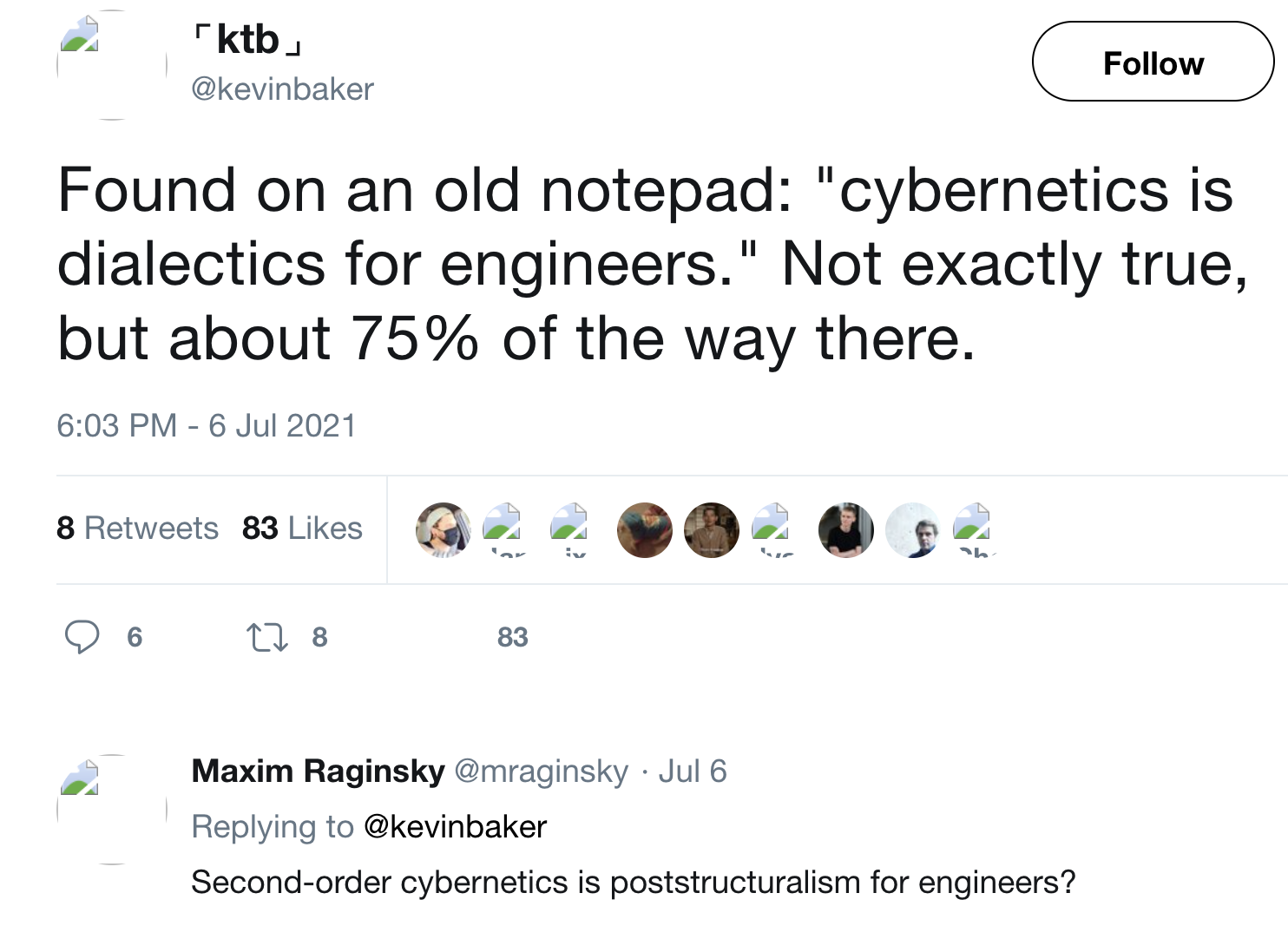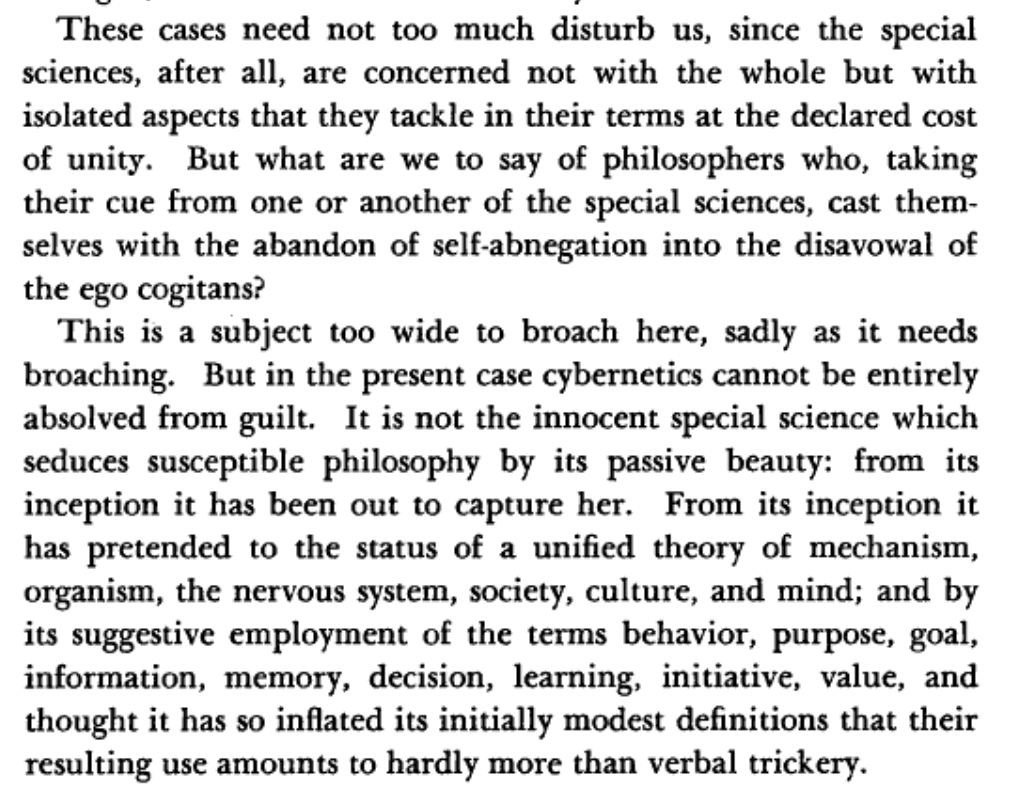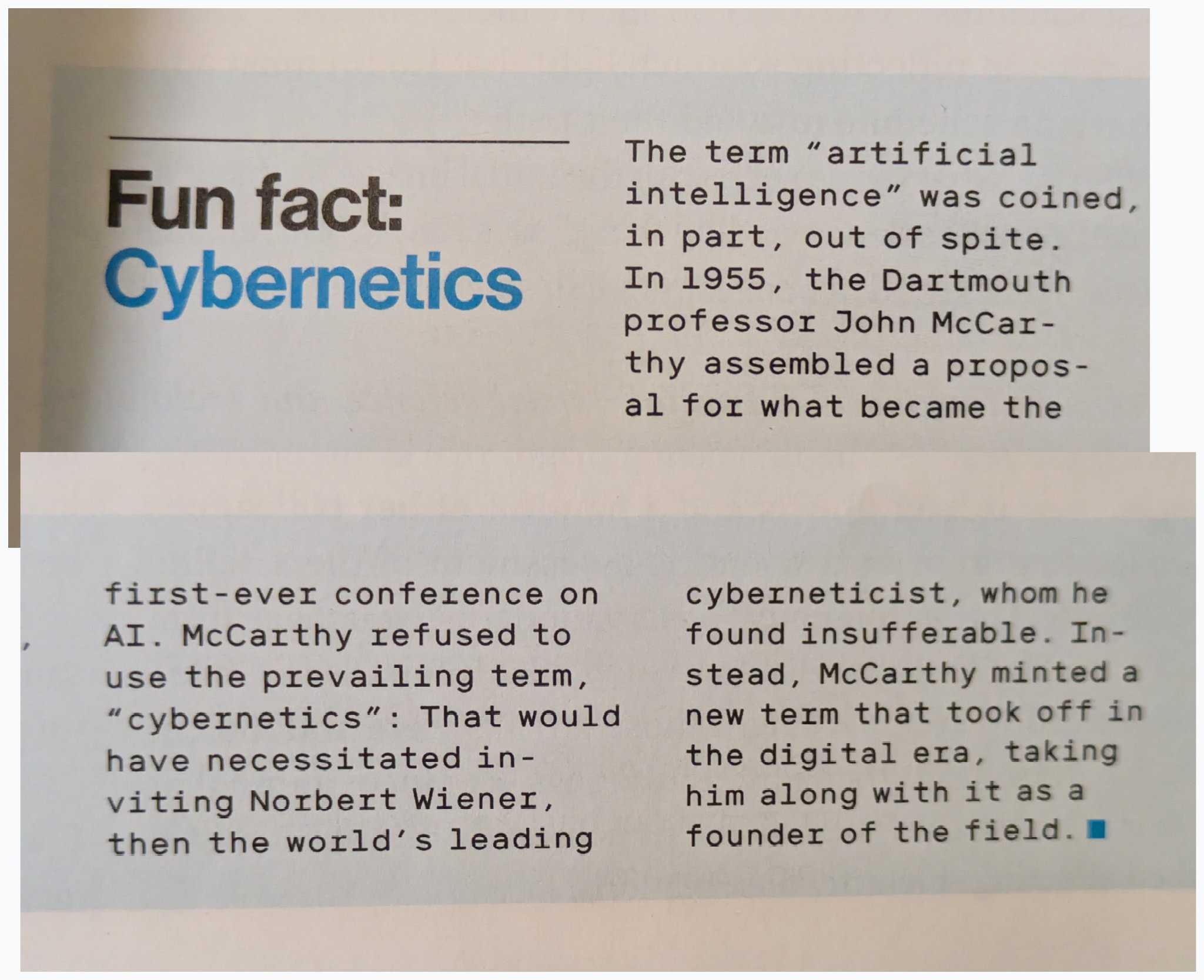cybernetics
30 Oct 2021 - 02 Nov 2025
- Heidegger complained that cybernetics was replacing philosophy, but I always thought that was a good thing, because cybernetics was effective while philosophy had been stuck on the same stupid problems for thousands of years.
- Cybernetics for the Twenty-First Century: An Interview with Philosopher Yuk Hui - Journal 102
YH: In Recursivity and Contingency, I try to show why Heidegger was right concerning the end of metaphysics and also why it is necessary to think beyond Heidegger. In 1966, journalists from Der Spiegel asked Heidegger what comes after philosophy. He replied: cybernetics. The organic is, for Heidegger, nothing but the mechanical-technological triumph of modernity over nature. This is why I think the organic mode of thinking, and the fields it has given rise to such as ecology, cybernetics, Gaia theory, etc., are manifestations of this “end.” The question is how to think beyond this end.
- Some cyberneticians who appear in these precincts:
- Do not know anything about Wilfred Sellars a thread:
Even cybernetics, the interdisciplinary study of communication and control, is the subject of conflicting interpretations. It is well documented that some of the top scientific minds of the postwar era were drawn to the field and its promise of universality, and that cybernetic ideas on feedback, control, systems analysis, and information transmission shaped work in a number of fields. For example, cybernetic thinking influenced the trajectory of operations research, computer engineering, control engineering, complex systems, psychology, and neuroscience. Yet few scientists today identify themselves as cyberneticians first and foremost. ...Popular misunderstandings of cybenetics have led members of the scientific community to view the term with disdain, and cybernetics is not part of the lexicon used by government funding agencies. Even in the 1950s, arguably the heyday of the field, members of the scientific community viewed it as shallow because of its interdisciplinary reach, criticized it for lacking quantitative rigor, and claimed its methodology consisted of little more than making analogies. It did not help that in the popular imagination cybernetics was often linked to science fiction or fads such as Dianetics, the theory on the relationship of mind and body developed by L. Ron Hubbard in 1950.
Incoming
- Jonas critique of cybernetics A CRITIQUE OF CYBERNETICS on JSTOR
- Hm doesn't look that interesting but I just skimmed




